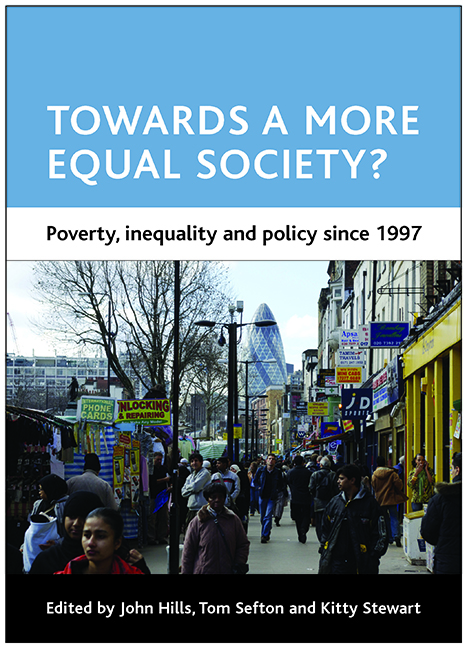twelve - Inequality and the devolved administrations: Scotland, Wales and Northern Ireland
Published online by Cambridge University Press: 22 January 2022
Summary
Introduction
A great deal has been written about devolution since 1997, mostly in relation to the institutional and constitutional complexities produced by multiple layers of government. Rather less attention has been paid to the social policy innovations that devolution may have generated, and still less to the actual consequences of those changes in terms of poverty and inequality. This chapter takes up that challenge, with a particular focus on income and educational inequalities.
The remainder of this introductory section briefly reviews the degree of devolution that Scotland, Wales and Northern Ireland have each enjoyed since 1997 and examines the reasons why we might or might not expect devolution to reduce inequality within and between the nations. The review suggests that the scope for policy divergence has been limited.
The second section describes the policies pursued in practice in Scotland, Wales and Northern Ireland since devolution and explores the extent to which they represent a divergence from the past and/or a divergence from policy as it has evolved in England and the UK.
The third section reports changes over the period 1998-99 to the present in some key outcomes: poverty (including child poverty), income inequality and educational attainment, overall and by social class.
The final section draws on the evidence of policies and outcomes to offer an assessment of whether devolution has so far produced more effective strategies for reducing inequality and poverty than would have occurred in its absence and reflects on the prospects for the future.
Does devolution tend in principle to increase or decrease inequality?
In thinking about inequality, we can consider:
(a) inequality among the population of the UK as a whole;
(b) inequality within the populations of each constituent country; or
(c) inequality between the nations themselves.
The different measures may not move in the same direction. This chapter is concerned primarily with individuals as the unit of analysis rather than countries (since it is individuals who experience the effects of inequality), so will concentrate on inequality within each country and within the UK population as a whole (a and b), rather than on inequality between England, Scotland, Wales and Northern Ireland.
- Type
- Chapter
- Information
- Towards a More Equal Society?Poverty, Inequality and Policy since 1997, pp. 245 - 266Publisher: Bristol University PressPrint publication year: 2009



